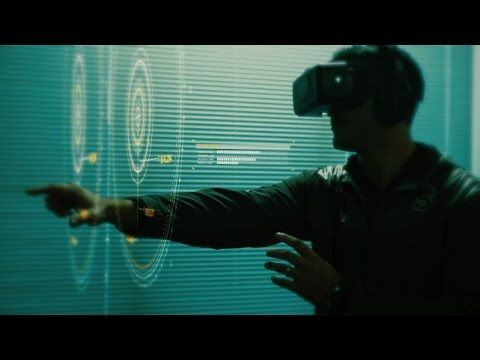Oculus Rift Virtual Reality Headset Could Revolutionize Football And Exercise In General

We hear "virtual reality" and automatically assume we're talking about video games. However, health care professionals have come up with a number of ways virtual reality can be used to broaden the scope of medicine.
For example, addiction researchers in South Korea say virtual reality can be used to reduce alcohol cravings in people affected by an alcohol use disorder. Some developers even say virtual reality could replace real life therapists. Now, Oculus Rift, a virtual reality headset company that was bought by Facebook in 2014 for $2 billion, is confident virtual reality can be used to revolutionize how athletes train at the highest level of competition.
It should come as no surprise the headset was founded at Stanford University's STRIVR Labs — one of the top Ivy League schools in the country, where their 2015 season ended with a 45-16 rout over Iowa in the Rose Bowl.
"From inside the Oculus Rift headset, players get a 3-D look at the field while headphones provide realistic sound," the above video description read. "Teams capture the footage by filming their practices with 360-degree cameras, so the experience inside the VR headset looks and sounds like the real thing rather than a video game."
While STRIVR works on hooking every collegiate and professional quarterback up to an Oculus Rift to help them with pocket presence, eluding pass rush, and quickly recognizing each pattern his receivers run, we can't help but wonder how it would affect everyday physical activity. Just look at the recent studies showing that by looking at nature we can improve our mood, lower stress levels, and improve upon how likely we are to exercise.
So if, say, runners see themselves hitting a trail rather than a treadmill, and they're able to track their every move, who's to say it wouldn't benefit their performance, too?



























